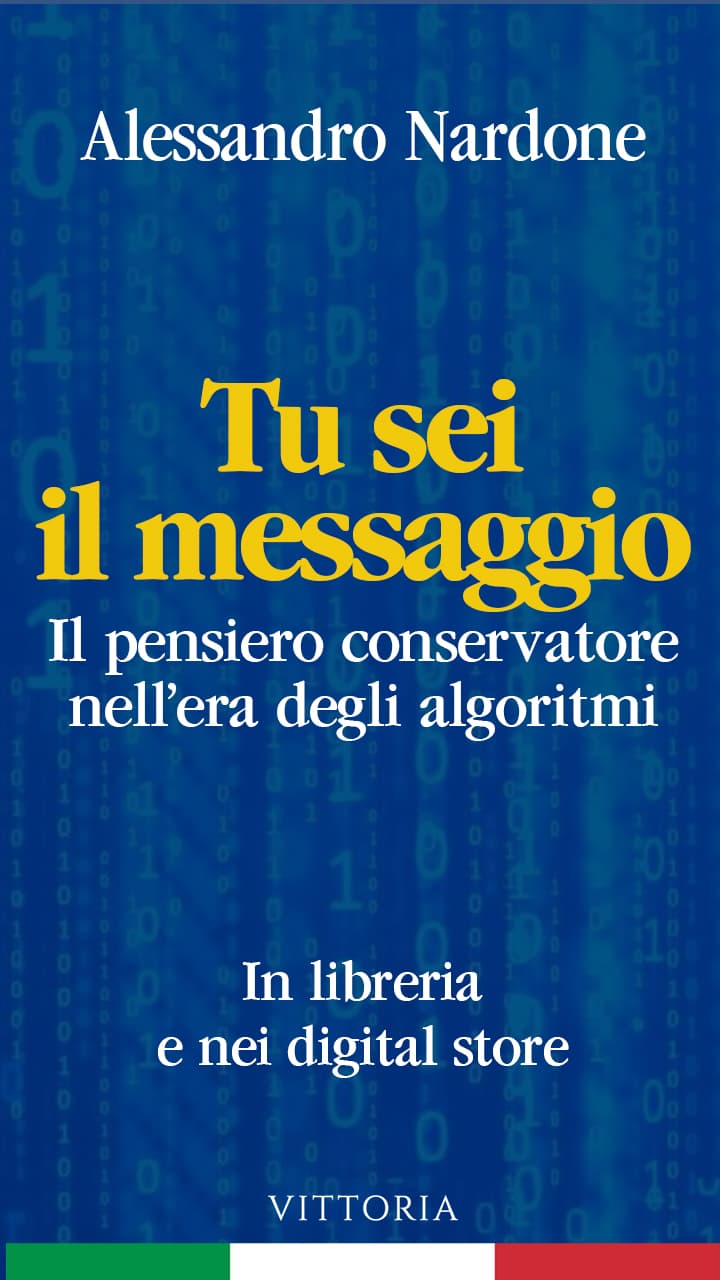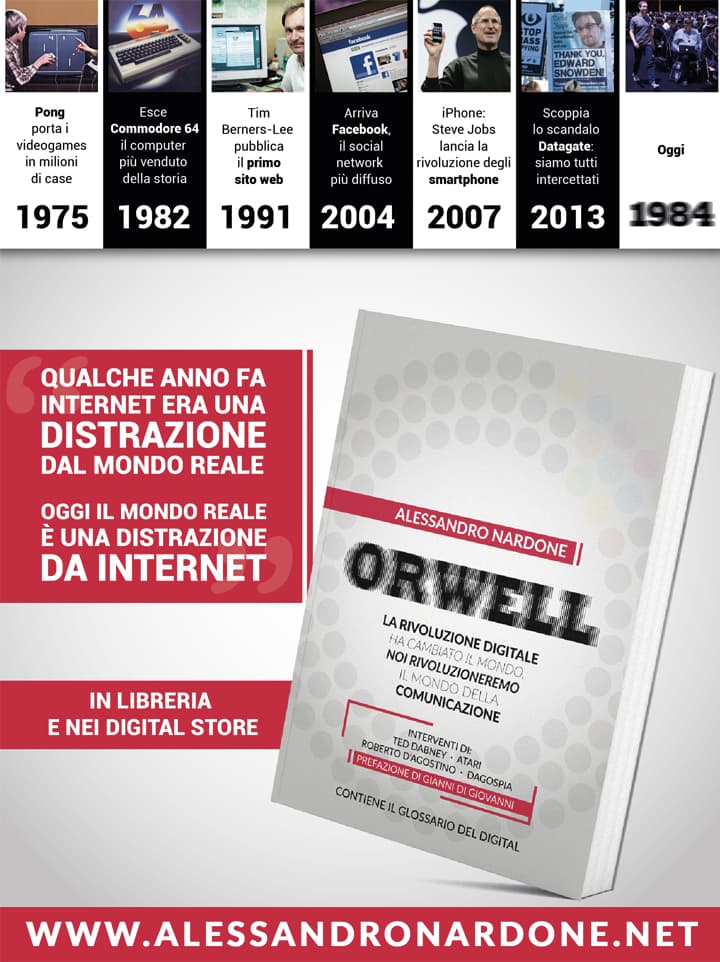Click here to read the italian version on “Agenda Digitale”
Reflecting on the words that are suitable to represent a concept that’s apparently abstract such as the humanization of the Web, it occurred to me the famous speech about GDP – pronounced by Bob Kennedy at Kansas University – three months before dying murdered at the Los Angeles Ambassador.
«GDP can tell us everything about America, except why we are proud to be Americans» these are the words with which JFK’s brother closed admirably the circle, meaning that society can’t be measured with an economic guideline, since it doesn’t consider the good and the evil but only the more and the less.
After 53 years, of which 40 and more years of Digital Revolution, we could simply paraphrase that speech by replacing the GDP with the Big Data: not because the economic indicators had lost importance, but because thanks to the ownership of the data, the giants of the web are centralising a huge part of the available wealth, taking it away from the other economic parties and, in contrast, from States and inhabitants.
There are two business models on which they are based: the first one is thanks to which Google and Facebook had absorbed communication and information reselling our attention to their clients, the more time we spend on their platforms the more they earn. Every action we take is traced and is used to profile us, in other words, to transform us in “target” to bombard with advertisements.
A concept that in the Web is finding its maximum expression but that saw the light in New York back in 1833, when Benjamin Day established The Sun, the first penny press.
Practically, the young publisher (at that time he was 23 years old) understood that the real value to be monetized was not the newspaper itself, but the attention of an indefinite number of people captured by that news.
To simplify the concept: his readers were convinced to be clients whereas they were his product. You got it right: today for the information system we are the merchandise that is conquered everyday through our attention.
The second business model is based on commissions realized by big players in the Web such as Booking, Amazon and Just Eat, these are three examples I can think. In this case, platforms assimilate big part of the power of the Companies that belong to them, centralising everything: visibility, clients and prices.
Basically, the reasoning is this: if you want to be visible you must stay on my platform and if you want to sell your products, you must be on my terms, that is lower and lower prices and paying me higher and higher commissions.
Ca va sans dire, the result is that the profit margins of the Companies get thinner and thinner for the benefit of the Big Tech, that now dictate nearly uncontested laws.
Successively, it takes us directly to the digital supremacy theme, destined to assume a more and more central role on the public debate scene. This is demonstrated by the paper realized by the European Parliament with the title “Digital Sovereignty for Europe”, where we read literally « in the context of competition and regulation, it might seem beneficial to obtain more technological independency through a movement towards more defensive and prudential mechanism, including new rules to face the foreign state property and the altered practices of the big technologic societies. »
In other words, the Institutions are starting to enter in the order of ideas to rebalance the employment rules, whose scale completely hangs to the opposite side, that is Zuckerberg and his company.
Better late than ever, even if to extend the debate between the “non-experts” it was necessary to wait for Twitter and Facebook to decide to censor the USA President Donald Trump, nonchalantly a little before the end of his mandate.
In this circumstance, it’s indispensable to not pause on one point of view, but to consider the whole context: as said before, the Big Tech make business keeping us glued to their platforms and reselling our attention to who wants to submit their advertisements.
Well, to capture our attention contents are needed, among them news, and -as Agcom data explain- even in Italy the access to information mainly occurs through algorithmic sources, which means not directly form the source (website from which the news comes) but from platforms like Google and Facebook.
The point is that are the algorithms of those platforms that decide which news to show and they do this with the aim I was just explaining, that is keep us glued as much as possible to our devices display.
As Walter Lippmann used to say, news is part of a kind of pseudo-environment, but our reaction at this environment aren’t pseudo-actions but real actions. Therefore, considering that, on average every Italian is connected to his device during 6 hours a day more and less, a big part of the actions we make and take are influenced from algorithms. These are «the distort practices of the big technological societies», mentioned in the paper of the European Parliament.
On top of that, we have to add the piece regarding the property of our digital Identity: personal or busineslike, today it’s present on private servers we find halfway across the world, who can arrange our data as they wish.
By digital Identity not only I mean our data and the trade of every action we make, but also our contacts and fan base: there are experts, companies and influencers that had invest years of work and huge amounts to develop their own brand on the main platforms, which anytime could close the account or change rules in a random way.
Despite all this, the icing on the cake is the fact that the Big Tech don’t pay any tax in the countries where they generate revenue, enjoying conditions infinitely more favourable compared to an artisan or a self-employed.
Saying this, it might seem an untouchable paradigm, but in addition to initiatives like the European Parliament one, on a global scale a growing number of people and opinion makers handle themes such as digital supremacy and Web humanization.
According to Italy, we can mention the “manifesto” presented by Giorgia Lupi on the latest issue of “Corriere Innovazione”, or real alternatives like the new social MatchMe, based on the concept of the high-quality relations we create and, on the time, we spend with them. In conclusion, more quality and less quantity, is and will always be the more “sine qua non” to put back the church at the centre of the village and go back to living the Web and its limitless opportunities as main character, in the sign of real values declared by Bob Kennedy and not in the sign of Big Tech financial statement.



























